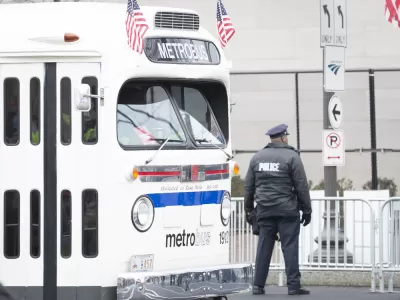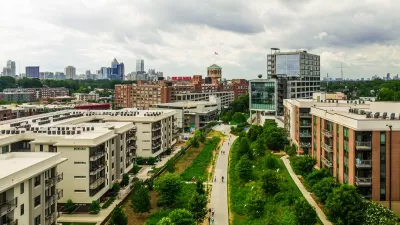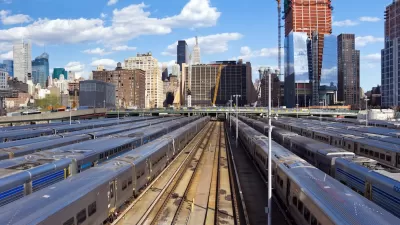Cities have to prioritize displacement as a policy issue if they want to achieve inclusive growth, writes David Whitehead.

As pro-growth and anti-gentrification advocates clash in cities across the U.S., Greater Greater Washington contributor David Whitehead suggests that one way to bridge the divide is by addressing the displacement caused by new development.
"The goals of redeveloping affordable homes, building more homes overall, and maintaining a clear path for original residents to return do not have to be at odds," he writes. If combined with tenant protections and preservation efforts, he argues, growth and redevelopment can be managed in a way that "does not pit the needs of our burgeoning population and the needs of more vulnerable residents against one another."
D.C.'s Comprehensive Plan—not uniquely—doesn't define any policy tools or funding mechanisms aimed at preventing displacement. To fill that gap, Whitehead lays out the principles behind a policy package proposed by the GGW team.
The package suggests new policy tools to preempt a few of the ways that new developments can directly cause displacement. Recommendations include requiring one-to-one replacement of affordable units in new developments, as well as build-first policies, in which existing apartments are not demolished until their replacements are ready. Funding proposals include:
…allowing zoning flexibility to build a taller building, using some of the profit generated from those extra units to subsidize in-house lower-cost units. That might mean expanding voucher programs like DC’s Low Rent Subsidy Program (LRSP), to help meet the gap between what families can afford and what it costs to build a low-cost home.
For more perspectives and debate on these ideas, look no further than the comments.
FULL STORY: DC’s Comprehensive Plan needs to treat displacement as a serious problem

Alabama: Trump Terminates Settlements for Black Communities Harmed By Raw Sewage
Trump deemed the landmark civil rights agreement “illegal DEI and environmental justice policy.”

Planetizen Federal Action Tracker
A weekly monitor of how Trump’s orders and actions are impacting planners and planning in America.

The 120 Year Old Tiny Home Villages That Sheltered San Francisco’s Earthquake Refugees
More than a century ago, San Francisco mobilized to house thousands of residents displaced by the 1906 earthquake. Could their strategy offer a model for the present?

Ken Jennings Launches Transit Web Series
The Jeopardy champ wants you to ride public transit.

BLM To Rescind Public Lands Rule
The change will downgrade conservation, once again putting federal land at risk for mining and other extractive uses.

Indy Neighborhood Group Builds Temporary Multi-Use Path
Community members, aided in part by funding from the city, repurposed a vehicle lane to create a protected bike and pedestrian path for the summer season.
Urban Design for Planners 1: Software Tools
This six-course series explores essential urban design concepts using open source software and equips planners with the tools they need to participate fully in the urban design process.
Planning for Universal Design
Learn the tools for implementing Universal Design in planning regulations.
Clanton & Associates, Inc.
Jessamine County Fiscal Court
Institute for Housing and Urban Development Studies (IHS)
City of Grandview
Harvard GSD Executive Education
Toledo-Lucas County Plan Commissions
Salt Lake City
NYU Wagner Graduate School of Public Service





























